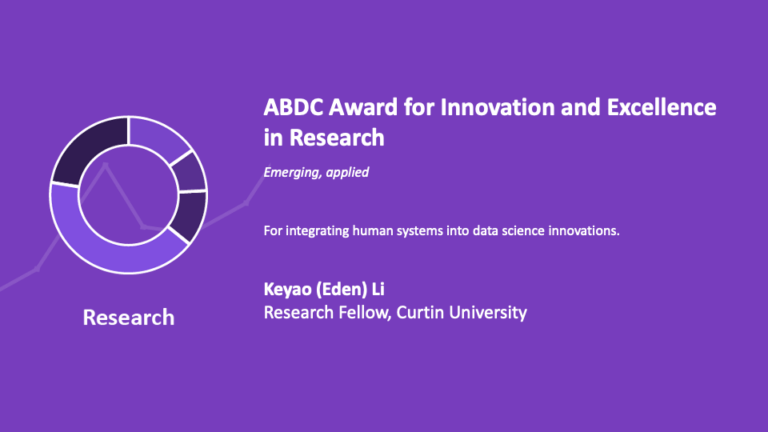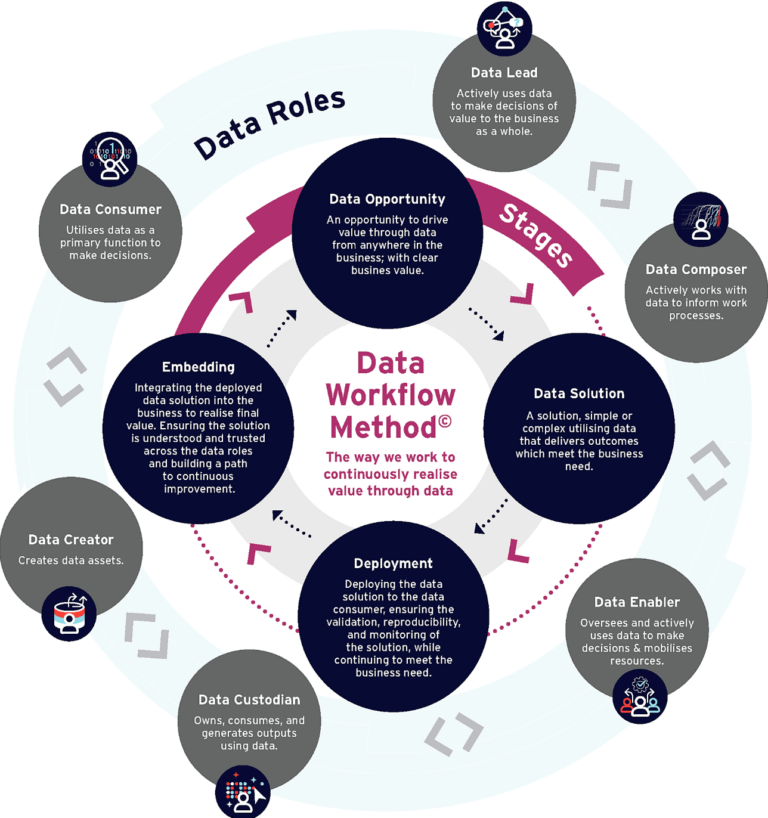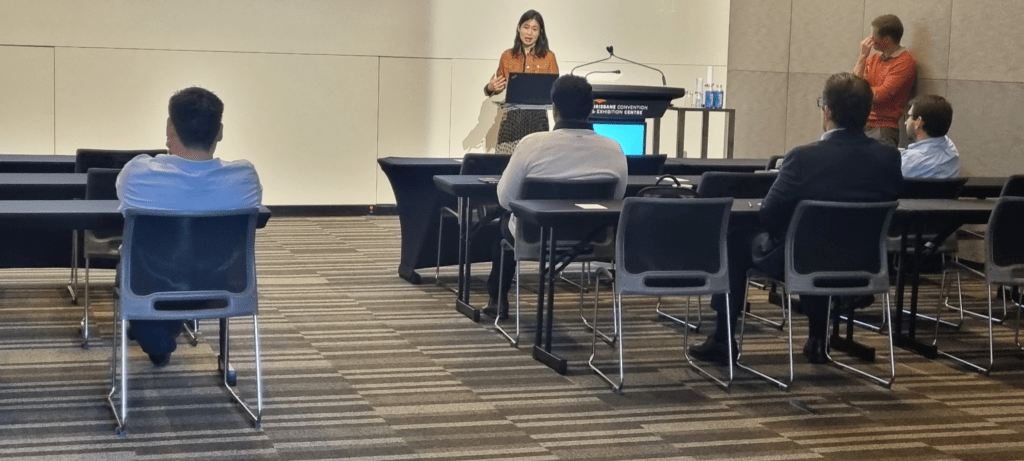2023 Network Awards – Emerging, Applied Research

Judges’ comments
The panel was impressed with the strong engagement and collaboration with industry throughout the research process, including applying the method to enhance the data fitness of a mining operation. Subsequent industry workshops further demonstrate the real-world application of the Data Workflow Method to nurture data science capabilities across organisations.The initiative
Despite optimistic forecasts about their potential, many industry innovations in data science face high failure rates. Current frameworks offer standardised methodologies for data science. However, they fall short in accounting for human systems — key elements like role clarity, skills, and cross-team collaboration, which are vital for building organisational capabilities. This results in insufficient guidance on the human conditions for successful data science innovations.
We began by examining human systems across different analysis levels and their contributions to innovation. Significant research suggests that for innovation to thrive, there must be support across various organisational levels. These levels collectively create the organisation’s innovation capability.
Our review laid the groundwork for integrating human systems into data science innovations.
Furthermore, we developed a novel Data Workflow Method (DWM) structured as a four-stage iterative cycle, employing a multi-disciplinary team to develop, implement, and embed data science.
To ensure the effectiveness of the DWM, clear role clarity was advocated with six data roles carrying specific responsibilities.
Our study suggests that the DWM’s efficacy stems from three core elements: a systemic data workflow; multi-disciplinary collaboration and accountability networks; and well-defined data roles with associated skills and expertise.
This research contributes to innovation management theories, emphasising the importance of guiding individuals and eliminating hurdles to data science across organisational tiers. On a practical note, our findings advocate for a whole-of-organisation approach to nurture data science capabilities. Innovation managers can leverage our insights to refine work systems and chart clearer paths towards bolstering their data science endeavours.

How it works
Keyao (Eden) Li was one of the founding members of the Data Workflow Method (DWM) Steering Committee, which was established in 2021.
The committee included representatives from the CORE Innovation Hub, the University of Western Australia, Katalyst Data Management, and Chameleon Mettle Group. The inspiration for this research emerged from committee discussions about existing research gaps and industry requirements. Committee members played a significant role in conceptualising, developing, and implementing the research.
The research initiative was showcased to various industry stakeholders through a collaboration between the Future of Work Institute and CORE Innovation Hub.
To better implement the DWM approach, the team examined an integrated data workflow within a mining operation, facilitated by an industry collaboration with a mining organisation via the Australian Research Council (ARC) Training Centre for Transforming Maintenance through Data Science.
Over the past two years, this operation has utilised geological data in machine learning models to stabilise daily mill production. The research established a comprehensive data science capability framework, equipping the mining firm with tools to enhance their ‘data fitness’ and navigate data science workflows, specifically for the ‘<1mm machine learning model’.
This model led to the creation of tailored skills and support programs for other data roles in the business. The working model and approach accelerated an exciting deliverable for the industry and valuable insights for the mining firm.
Research findings were disseminated in two industry reports and through briefings with key stakeholders from the mining operation.
Academic outcomes
- One journal paper is published in the Technovation journal (IF: 12.5; JIF quartile: Q1; JIF Rank: 1/86 operations research & management science).
- Another manuscript was sent to the Data-Centric Engineering under Cambridge Core, aiming to contribute to the data science community. The journal’s review team responded positively, noting, ‘We are very keen on this kind of work in Data-Centric Engineering’ and ‘This paper was an enjoyable and thought-provoking read’. The paper is currently undergoing a second round of minor revision before its acceptance for publication.
- The conference paper was presented by the research team at the World Mining Congress 2023.
Joint presentations with industry
- At the Data Science for Business Conference & Exhibition in Perth, 2022, Mr Zane Prickett, the Director of CORE Innovation Hub, and I jointly presented the DWM initiative, sharing our knowledge and experiences with the wider industrial data science community.
- At the World Mining Congress 2023 in Brisbane, Mr Zane Prickett and I co-facilitated a workshop titled ‘Building a Data Fitness Organisation: Understanding How Value is Delivered Through Data’. We offered pertinent training and enhanced public comprehension of data management and data-driven operations.
Interactive workshops

— Workshop participant
Further information
Academic papers published showcasing the collaboration with industry partners:
- Li, K. and Griffin, M.A. (2023). Unpacking human systems in data science innovations: Key innovator perspectives, Technovation, 128:102869, https://doi.org/10.1016/j.technovation.2023.102869
- Li, K., Griffin, M.A., Barker, T., Prickett, Z., Hodkiewicz, M.R., Kozman, J., and Chirgwin, P. (2023). Embedding data science innovations in organizations: a new workflow approach, Cambridge Core, https://doi.org/10.1017/dce.2023.22